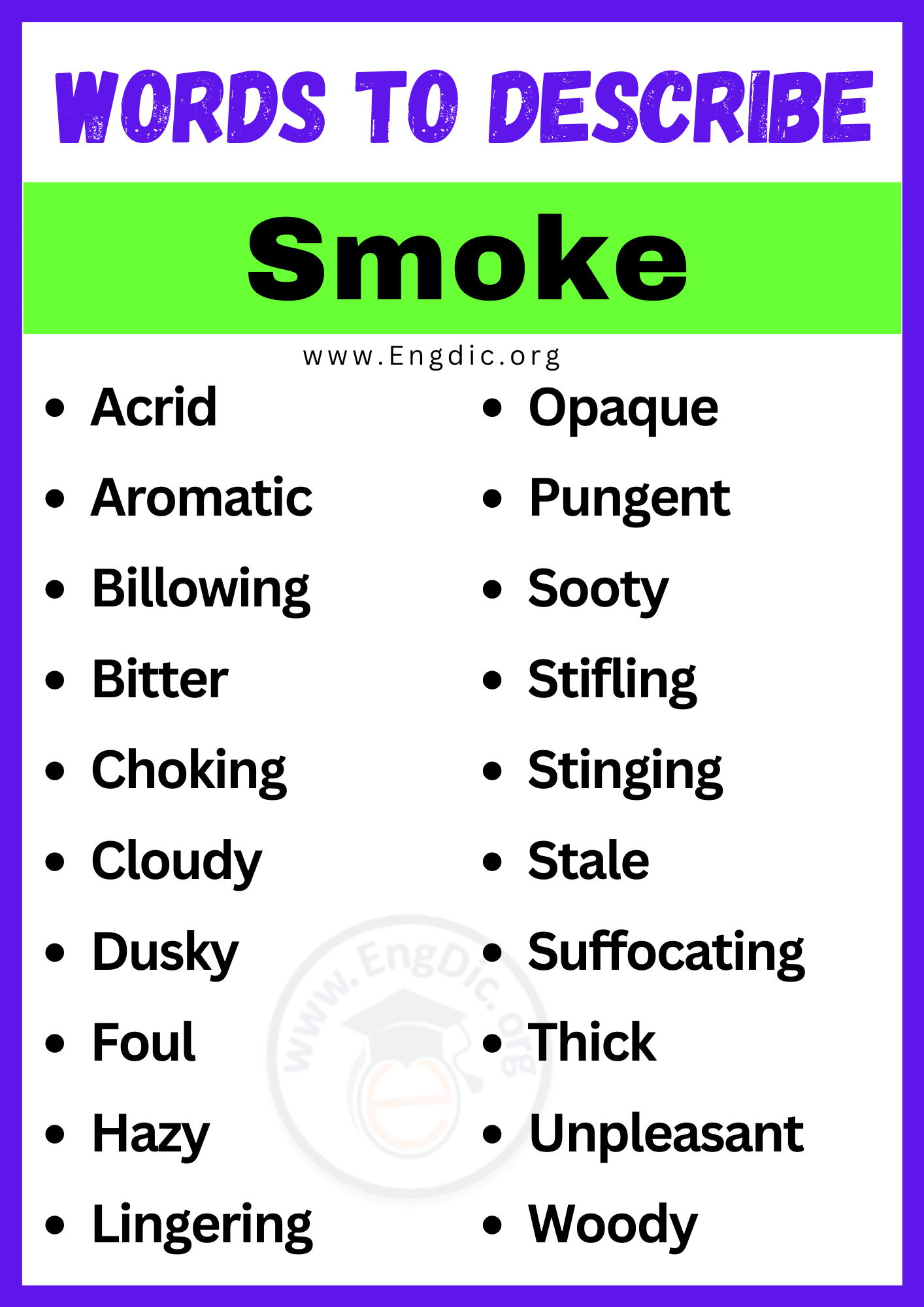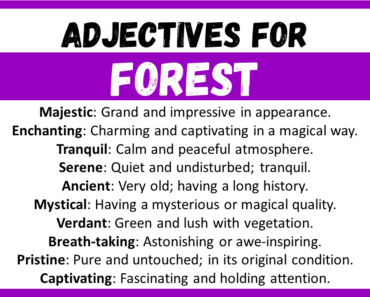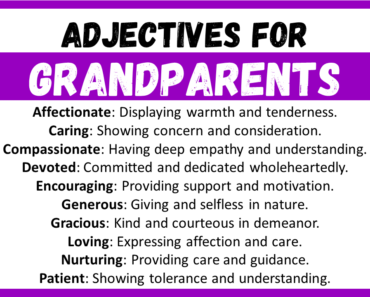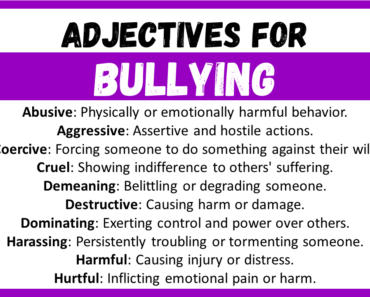In its simplest form, smoke refers to the collection of tiny particles and gases released when something burns. This fascinating yet ephemeral phenomenon has captivated human curiosity for ages. Describing smoke allows us to paint vivid mental images and evoke sensations through language. From billowing and ethereal to acrid and suffocating, words have the power to capture the essence of smoke, bridging the gap between the tangible and the intangible. Join us as we delve into a lexicon of words that illuminate the elusive nature of smoke and its many captivating facets.
Adjectives for Smoke
Here are the 20 Most Popular adjectives for smoke:
- Acrid
- Aromatic
- Billowing
- Bitter
- Choking
- Cloudy
- Dusky
- Foul
- Hazy
- Lingering
- Opaque
- Pungent
- Sooty
- Stifling
- Stinging
- Stale
- Suffocating
- Thick
- Unpleasant
- Woody
Adjectives for “smoke smell”:
- Aromatic
- Pungent
- Lingering
- Fragrant
- Smoky
- Foul
- Stale
- Hazy
- Woody
- Sooty
Adjectives for “cigarette smoke”:
- Stifling
- Offensive
- Cloying
- Bitter
- Acrid
- Choking
- Unpleasant
- Stale
- Stinging
- Persistent
Words to Describe Smoke with Meanings
- Acrid: Sharp and irritating smell.
- Aromatic: Pleasant and fragrant odor.
- Billowing: Expanding in large swirling clouds.
- Bitter: Harsh and unpleasant scent.
- Choking: Causes difficulty in breathing.
- Cloudy: Filled with suspended particles.
- Dusky: Dim and smoky in appearance.
- Foul: Offensive and unpleasant smell.
- Hazy: Misty or unclear atmosphere.
- Lingering: Persistent and long-lasting aroma.
- Opaque: Not transparent or clear.
- Pungent: Strong and penetrating odor.
- Sooty: Covered in black carbon particles.
- Stifling: Suffocating and oppressive smell.
- Stinging: Sharp and irritating scent.
- Stale: Old and musty odor.
- Suffocating: Overwhelming and choking smell.
- Thick: Dense and substantial in appearance.
- Unpleasant: Not enjoyable or pleasing aroma.
- Woody: Smells like burning wood.
Example Sentences for Smoke Adjectives
- The acrid fumes made my eyes water.
- The aromatic herbs filled the kitchen with a pleasant smell.
- The factory emitted billowing smoke into the air.
- The medicine had a bitter taste.
- The room was choking with cigarette smoke.
- The sunset painted the sky in cloudy hues.
- The room had a dusky ambiance with candles.
- The dumpster had a foul odor.
- The view was obscured by a hazy mist.
- The lingering scent of perfume filled the room.
- The windows were opaque with condensation.
- The pungent aroma of spices filled the air.
- The walls were covered in sooty marks.
- The heat was stifling in the crowded room.
- The stinging smell of onions made her cry.
- The refrigerator had a stale smell.
- The smoke in the room was suffocating.
- The soup was thick and hearty.
- The garbage had an unpleasant stench.
- The fireplace gave off a woody scent.
Explore More Words:
FAQ’s
How to describe smoke in writing?
Smoke can be described using adjectives like acrid, billowing, and pungent, to evoke its unique characteristics.
Is smoking hot an adjective?
Yes, “smoking hot” is an adjective used to describe something extremely attractive or appealing.
Is smoke an adverb or adjective?
“Smoke” is primarily a noun, but it can function as a verb as well. As an adjective or adverb, it is rarely used.








